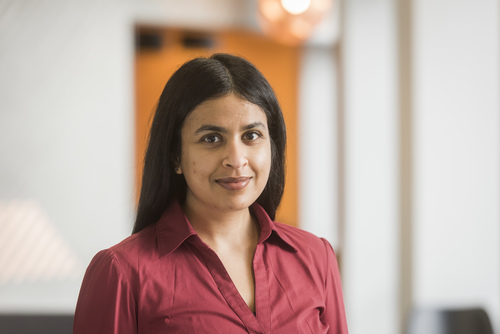Doctor CEOs hinder innovation in start-ups

Despite frequent involvement in executive roles, the researchers found that doctors are likely to block innovation as CEOs
PRESS RELEASE: FOR IMMEDIATE RELEASE
Doctor CEOs hinder innovation in start-ups
Medical doctors with executive roles in medical device start-ups can hinder innovation, finds new research from UCL School of Management and Stanford University, but have a positive impact if they are inventors or board members.
The study, accepted for publication in the Academy of Management Journal and funded by InHealth, looked at 231 US surgical instrument ventures over a 25 year period and found that companies achieved more patents and FDA product approvals when they employed medical professionals in technical or governance (board) roles compared to those who employed doctors as CEOs.
Despite frequent involvement in executive roles, the researchers found that doctors are likely to block innovation as CEOs because they stick to familiar products and technologies rather than exploring new ideas. On average, companies with non-doctor CEOs secured one more product approval per year than those with doctor CEOs.
“As inventors, doctors’ professional experience helps transform inventive ideas into products. This information helps develop a product that better fits the customer, often tapping into relevant networks and assisting in positioning the product,” said Professor Thatchenkery.
“Placing the right people in the right roles is key to success. We recommend that start-up companies hire doctors in technology roles early on and appoint them to governance roles as the company becomes more established.”
Doctors benefitted the companies most when their role involved generating a variety of innovative solutions to problems and were shown to be least helpful when making decisions about which solutions to develop.
Currently, only 20% of technologies that underlie medical devices are developed by or with professional end-users, such as doctors, and recent legislative efforts in the US have sought to reduce the involvement of doctors even further to reduce conflicts of interest.
The researchers state that separating the involvement of professional users, such as doctors, from company innovation would hinder the development of lifesaving surgical instruments produced by young firms. They warn that the recent legislative changes in the US show no appreciation for the doctors working as inventors and a more nuanced policy that acknowledges their key role in product development would help sustain innovation.
/ENDS
For more information, a copy of the paper, or to speak to Professor Thatchenkery, contact Stephanie Mullins at BlueSky PR on smullins@bluesky-pr.com or call +44 (0)1582 790 706.
This press release was distributed by ResponseSource Press Release Wire on behalf of BlueSky Public Relations Ltd in the following categories: Health, Consumer Technology, Business & Finance, Education & Human Resources, Medical & Pharmaceutical, Public Sector, Third Sector & Legal, Manufacturing, Engineering & Energy, for more information visit https://pressreleasewire.responsesource.com/about.